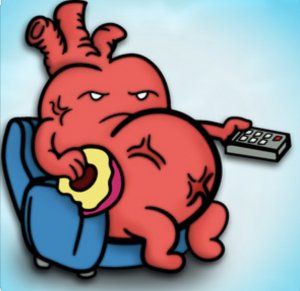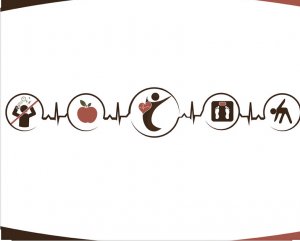Congestive Heart Failure (CHF)
Congestive Heart Failure (CHF) is a condition in which the heart does not adequately pump blood, causing the blood to move through the heart slowly. Due to the heart not sufficiently pumping and doing its job, it, in turn, affects the rest of the body’s functions. Heart failure can be categorized as right-sided or left-sided, each type can be found to cause different symptoms.
Symptoms of CHF:
- Pulmonary Edema is defined as the excess fluid within the lungs, inturn causing shortness of breath.

- Ascites
- Jugular Vein Distention
- Pitting edema: especially within the lower extremities
- Weight Gain
- Fatigue
- Rapid or, in some cases irregular heart rate
- Decreased Kidney Function
How is CHF diagnosed?
CHF can be diagnosed using a combination of tests some of which are lab tests others being imaging. One test that can help diagnose CHF is an Echocardiogram, an echocardiogram can help determine the percentage at which the heart is functioning at and can also determine the type of heart failure right or left. Another test to help diagnose CHF is a lab test called B-type natriuretic peptide (BNP), helping determine the cardiac function as well. One more common test to help diagnose CHF is a Chest X-ray; on a chest X-ray, you may see an enlargement in the heart that is referred to as cardiomegaly which can be an indicator of CHF.
Risk Factors For CHF?
People who are most at risk for developing CHF are individuals who already have conditions such as:
- Coronary Artery Disease
- Diabetes
- Hypertension
- Cardiomyopathy
- Heart Valve Disease
- Obesity
Treatment of Heart Failure:
Treatment for CHF ranges from different medications as well as lifestyle changes. These treatments do not cure the condition but are meant to prevent the progression of the disease and minimize symptoms of CHF. Some of the medications used to treat CHF are:
- Beta-Blockers: are used to decrease the heart rate; with CHF, the heart is working harder and has extra stress. This medication can help lower stress and improve blood flow.
- Diuretics: such as Furosemide are used to remove excess fluid buildup within the body caused by the CHF.
- Ace Inhibitors: are used to increase the elimination of excess fluid and salt within the body by decreasing constriction.
Lifestyle Modifications for Individuals with Heart Failure:
Symptoms of CHF can be lowered and decreased by lifestyle changes to ensure your body is getting the correct care, such as:
- Quitting Smoking

- Eating low fat and low salt diet
- Exercise as tolerated
- Limiting Alcohol Intake
- Weight Loss if needed
- Tracking fluid intake and output
- Monitoring Weight
- Managing stress
What is it like living and coping with a diagnosis of CHF?
References:
Nigam, H., & Jain, R. (2017). Congestive Heart Failure (CHF). Homoeopathic Heritage, 43(6), 17–24.
Norberg, E.-B., Boman, K., Löfgren, B., & Brännström, M. (2014). Occupational performance and strategies for managing daily life among the elderly with heart failure. Scandinavian Journal of Occupational Therapy, 21(5), 392–399. https://doi.org/10.3109/11038128.2014.911955
Kearns, M., Malone, L., & Clarke, B. (2017). Congestive Cardiac Heart failure patients in the community: successfully managing complexity and polypharmacy. International Journal of Integrated Care (IJIC), 17, 1–2. https://doi.org/10.5334/ijic.3733

Hello,
Your blog post is very informative on congestive heart failure (CHF). It gives a great overview on what this medical condition is, how it can be diagnosed, and symptoms. It provides the information in a very simple and effective way that is easy to view and understand. The life modifications included in the blog post is important information that this individuals with CHF should be aware of. These life changes could be a great help with their health and in helping with CHF symptoms. The video included in the blog is another informative resource to readers that provides additional information. Thanks for such an equational post!
Hi,
I enjoyed reading your blog and the visualizes you chose captured my attention. CHF is a condition that not only affects the heart but truly affects every organ when there is not enough blood flow. I found your post to be informative about the condition, signs/symptoms and treatment.
I loved your graphics (especially the lazy heart). The graphics and videos perfectly relayed the pertinent information and were aesthetically pleasing. The information provided was very informative but not too bogged down that it was difficult to read or understand.